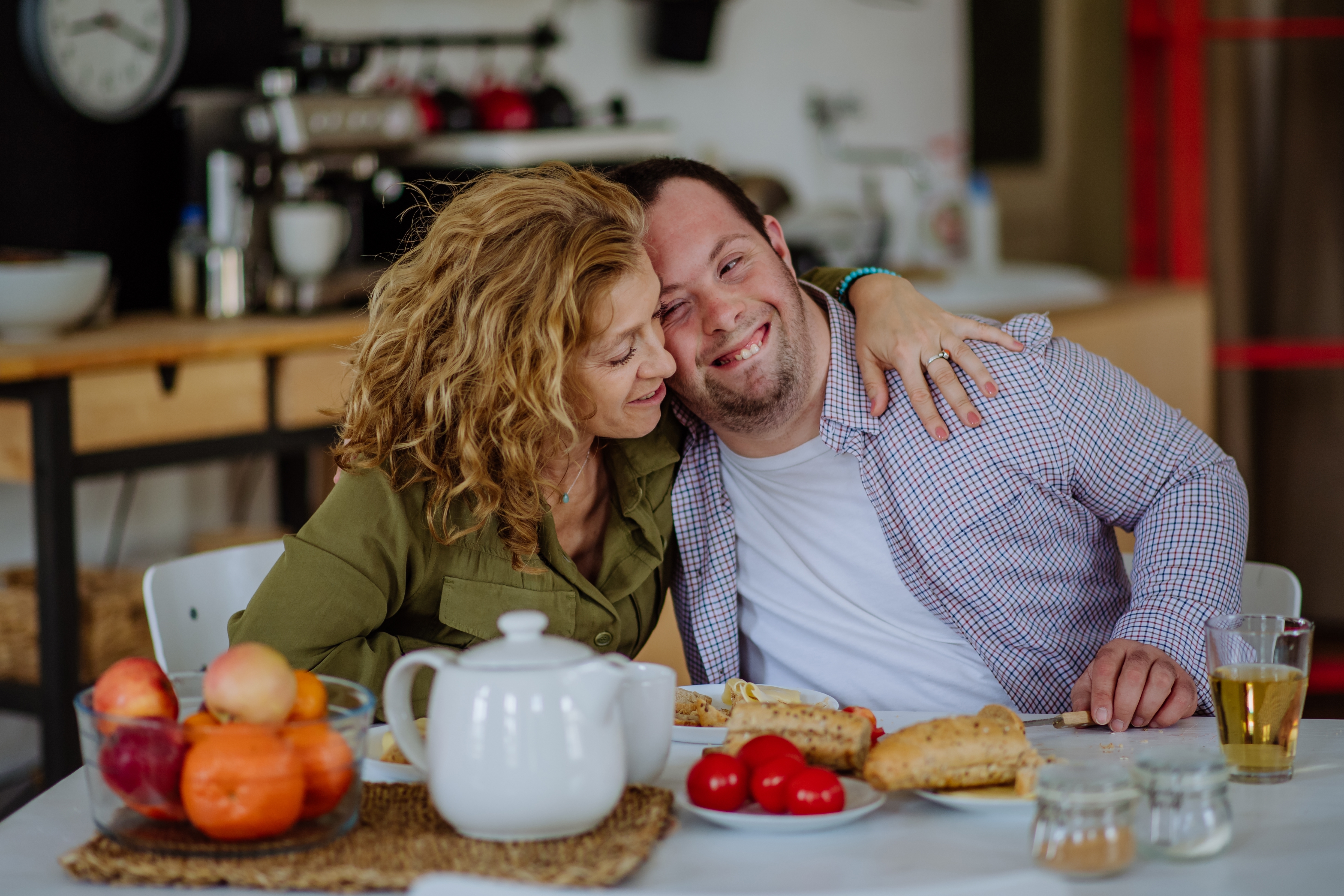By Fi Bridger, Achieve Australia Writer and Researcher
25 January 2024
Many parents of people with disability are very worried about what will happen to their children when they pass on. This concern is often shared by siblings, other family members and people with disability themselves.
Many parents of pwd are very worried about what will happen to their children when they pass on. This concern is often shared by siblings, other family members and pwds themselves.
One of my Mum’s major concerns is whether society can support me when she is no longer here. Diagnosed with Cerebral Palsy at 6 months of age, my parents' world changed quickly. Their entire existence focused on getting me to support services to improve my life. This included weekly speech, OT and rehab so I could gain the independence that I would eventually need when they were gone.
Now that I am 40 and Mum is in her 70s, her hard work and time dedicated to my independence has been replaced with fear, not about her mortality but whether society has the structures to support me moving into an independent living arrangement. I only recently received support from the NDIS, and Mum’s fears are allayed through working full time, so financially maybe I’ll be OK.
My friend George lives with an intellectual disability and his mum Lisa fears his ability to access housing for independent living. Lisa moved George into a group home when he was 20 to allow him to experience independent living in a highly regulated and supportive environment.
My fears are about the practical challenges that living alone will bring for me in years to come without my Mum. Things like cooking, washing clothes and what is required to organise a house are not something I can do. This is where the NDIS and support workers are key to accessing independent living.
Therefore, my experience is that our parents' worries surround whether the people with disability can access inclusive person-centred and individualised services.
Housing is one of the more complex areas that will impact us when our parents have gone. Take my friend George, his housing needs are served well through regulated group homes with supportive, trained and inclusive carers. However, his housing needs are very different to mine which is why an individual approach is needed where the people with disability are consulted. As stated by Dylan Alcott SBS 25.1.23 "Leave your negative perceptions at the door and lift your expectation of what you think people with disability can do. Because it's always more than you think." It is the community that needs to centre the person with disability in decision making. We know that people with disability interact and rely on the government more than others, thus, parents need to continue to advocate for the entire community as well as their own child.
While the NDIA is trying to advocate for less segregation in areas of employment, schooling and housing; people with a disability need to be centred in every discussion that impacts them. As stated by Natalie Wade on the podcast, I Can’t Stand, “in general everyday life I don't think that broader Australian communities really understand or appreciate how excluded we are”.
The role of housing for people with disability needs to consider the type of disability and availability of suitable accommodation. The NDIS currently provides funding but not necessarily the assistance to help people with disability find suitable accommodation. In my observation, there is also a lack of suitable housing available for people with disability.
My ideal accommodation would be accessible for my wheelchair and be pet friendly. Finding suitable accommodation also requires people with disability to have access to transport to navigate their lives.
Housing is a complex situation for people with disability and one that requires more planning to be inclusive. Previously group home availability was not individually assessed and not based on an individual's specific needs, for example, intellectual, non-intellectual ability, physical, non-physical ability and the like. This placed people into vulnerable and sometimes unsafe environments and lumped all people with disability in together taking a ‘one size fits all’ approach.
The Royal Commission into Violence, Abuse, Neglect and Exploitation of People with Disability (Royal Commission) Report released its final report in September 2023 with 222 recommendations.
Recommendation 7.35 called on governments to increase the availability and supply of accessible and adaptive housing for people with disability and audit both demand and accessibility given the current housing crisis.
Governments need to ask themselves are they upholding this? Or are governments perpetuating what was stated to the Royal Commission “that some Australians fear disability is 'infecting' the lives of non-disabled people.”
Housing requires a multi-faceted approach and much advocacy for people with disability to access this fundamental human right.
Our parents' work while we are children should culminate in dignity and inclusion as adults. Once they are gone, only society, policy and governments should help.
Explore more topics
- 2023
- disability
- inclusion
- YESequality
- belonging
- disability employment
- Accessible
- Community
- NDIS
- 2022
- Achieve Australia
- people with disability
- Accessibility
- Meet our Achievers
- The Sewing Basket
- blog
- travel
- women with disability
- Advocacy
- Art
- Australia
- COVID-19
- Disability services
- Employment
- Good nutrition
- Health tips
- Mental wellbeing
- NDS
- Sharing milestones
- Sydney
- achievable
- assistance dogs
- depression
- disability communications
- disability inclusion
- election
- employee of the year
- intellectual disability
- motherhood
- pregnancy
- social inclusion
- support workers

